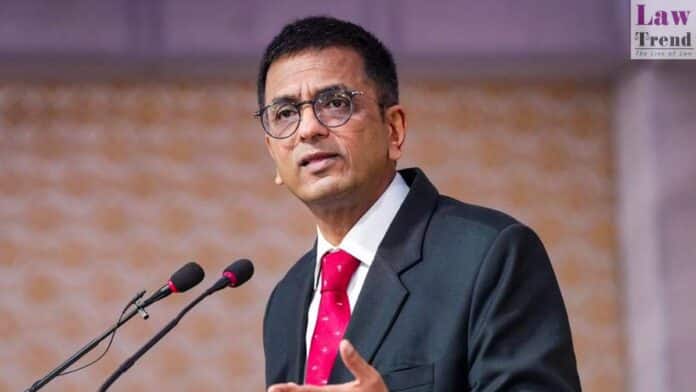Chief Justice of India, DY Chandrachud, emphasized the critical need for the justice system to understand and address the unique challenges faced by children with disabilities. Speaking at the ninth National Annual Stakeholders Consultation on Child Protection, he highlighted the necessity for every aspect of the system, from police stations to courtrooms, to adapt and respond effectively to these vulnerabilities.
The consultation, a two-day event, was held under the Supreme Court’s Juvenile Justice Committee, in collaboration with UNICEF, India. Union Minister for Women and Child Development, Annpurna Devi, delivered the special address, while Justice BV Nagarathna, chairperson of the Juvenile Justice Committee, provided the opening remarks. Cynthia McCaffrey, UNICEF’s country representative in India, introduced the topic at the event.
CJI Chandrachud detailed the multiple dimensions of challenges that disabled children encounter, which are not limited to physical barriers but also include deep-seated societal biases, stereotypes, and misconceptions. “Our legal, social, and institutional frameworks must be designed not merely to accommodate but to actively protect and empower these children,” he asserted.
Discussing the Juvenile Justice (JJ) Act, he mentioned that it already provides for various rehabilitation and reintegration measures like counseling, education, vocational training, and community service. These programs, he suggested, should be tailored specifically to meet the needs of children with disabilities, ensuring they receive the necessary support to flourish.
The Chief Justice also touched upon the concept of intersectionality, explaining how disability often intersects with other marginalized identities, thus intensifying the discrimination and challenges faced. “The doctrine of intersectionality highlights how multiple identities intersect to create unique experiences of discrimination, which can have devastating effects on children with disabilities,” he noted.*
CJI Chandrachud, who personally fosters two young daughters with special needs, shared insights from his familial experience, stressing the immense joy and challenges that come with caregiving. He remarked on the traditional view of caregiving as a task influenced by patriarchal norms and often overlooked as a private matter, urging for a shift towards treating it as a collective social responsibility.
The event also saw the release of a ‘Handbook on Persons with Disabilities’. This handbook aims to aid and sensitize the legal community and the public in adopting inclusive terminology when referring to disabilities. In his closing remarks, CJI Chandrachud announced that the handbook would be available in Braille and as an audiobook, ensuring accessibility for all.




